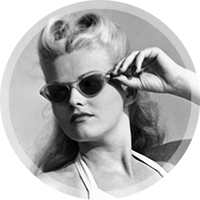

When I was young, and life was a constant exploration of the woods, swamps and fields around my home, I often found snake skins. The empty, discarded top layer of skin a snake sheds after it grows a shiny new one. Usually, I found only bits and pieces, like scraps of cobwebs. Every once and a while, I would come across a skin in its entirety, fragile, translucent, still shaped like the creature that had outgrown, wriggled out and left it behind. I learned that was how growth worked: itchy and probably painful, and you had to cast aside a part of you to pay for it. I learned that was natural. I learned that was expected.
Growing up close to nature taught me a lot about the give and take of life and what I didn’t learn on my own was taught deliberately to me. I grew up in a family of hunters and trappers who treated their relationships with nature seriously. I was taught that death was a part of life, but never to cause it without necessity or responsibility. When it happened naturally, it required a respectful but unsentimental task of acceptance. We paid for what we took. We maintained a balance. We moved in circles.
In the springs, we dug up the earth to plant gardens and sometimes turned up arrowheads, bits of flint sharpened into points and broken by time, remnants of the people here before us. As a child, the discovery was astounding to me. I had believed, as all children do, that the world I knew was perpetual and mine. But holding an arrowhead in my hand made me see the world differently. I began to see I was a much smaller part of it than I had previously assumed, and that it moved in ways unjust and unexpected and seemingly unbalanced. I later learned that everything, good or ill, balanced out in the end, and what might be in my favor now would not always be so.
These are lessons you don’t tend to learn just once. Maybe you’re not supposed to. They’re too large to learn at once. You get glimpses of them, a few seconds every few years, and, as you go on, you have to repeat them, so that you can stitch all the glimpses together into some sort of understanding about how life works.
On St. Patrick’s Day six years ago, I got a call from my sister in the middle of the afternoon. I knew what she was going to say before I answered it. I was waiting. Two days before, I had left my mother in the hospice, because the cancer had taken half her body weight and all of her strength to speak. I had to lift my three-year-old daughter up to give her a kiss then, but neither one of them really understood what was happening. After I talked to my sister the day she called, I walked through downtown Columbus, Ohio, past the green parade that was enjoying the unseasonably warm temperature, and went to the river named for the people that had once lived on its banks, and I sat there and wondered how many people between them and me had sat there and thought about how we manage to live with so many things coming and going and constantly shifting and disappearing and breaking.
The only constant is loss. The most difficult task in the world is to learn how to be grateful for what teaches you that lesson. But you’re even worse off if you never learn it. Because, eventually, no matter what, you will meet loss and if you don’t know the lesson you won’t know what else there is beyond loss.
Hint: there’s only you. And now. And that’s all there ever is.
My mother used to collect four-leaf clovers. She had a talent for finding them. Where most people might find one or two during their lives, she found dozens. After she died, we found them all, faded, dried, delicate, pressed between sheets of wax paper between the pages of her cookbooks. I used to think that all of their supposed luck hadn’t helped her much. But, of course, that was never the point. They were what was left over. The broken old tools, the crumbling old skin. What we use to get from one day to the next and what we can’t take with us when we’re done. The small cycles we move through in our lives and the large cycles we move through in the world. We should leave all the markers we can behind, signposts and maps and souvenirs and records and stories, because there will be many more coming after us and the least we can do is try to show them the way.